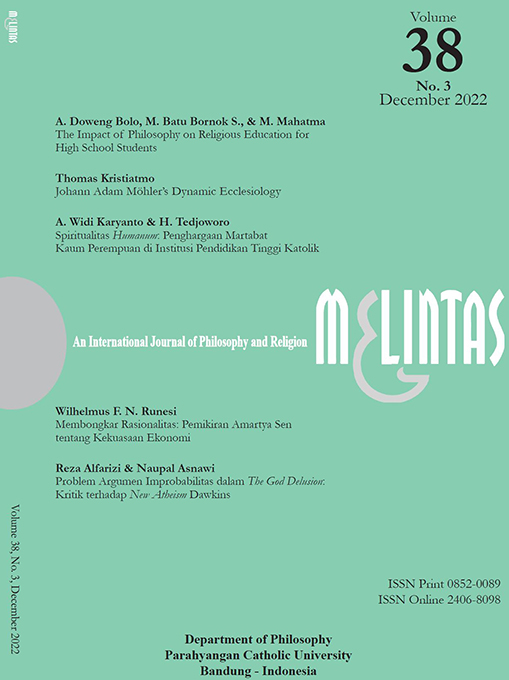Johann Adam Möhler’s Dynamic Ecclesiology
DOI:
https://doi.org/10.26593/mel.v38i3.7406Keywords:
ecclesiology, Romanticism, Enlightenment, Möhler, creativity, organic and dynamic ChurchAbstract
Along with Kant’s sapere aude, the Enlightenment brought about a certain kind of rigidity as though everything could only be understood by way of logical reasoning through a set of inflexible procedures. When the Church was understood within this movement, it lost its dynamic and organic dimension. Romanticism, as the counter movement of the Enlightenment, brough new inspiration as to how one should do ecclesiology. Möhler took the chance. His ecclesiology is influenced by romanticism without being too abstract. His ecclesiology is exemplary of a creative ecclesiology that can manage various tensions due to different ways of understanding the nature of the Church.
Downloads
Published
Issue
Section
License
Copyright (c) 2023 Thomas Kristiatmo

This work is licensed under a Creative Commons Attribution-NonCommercial 4.0 International License.
MELINTAS applies the Creative Commons Attribution (CC BY NC) license to articles and other works we publish. If you submit your paper for publication by MELINTAS, you agree to have the CC BY NC license applied to your work.


